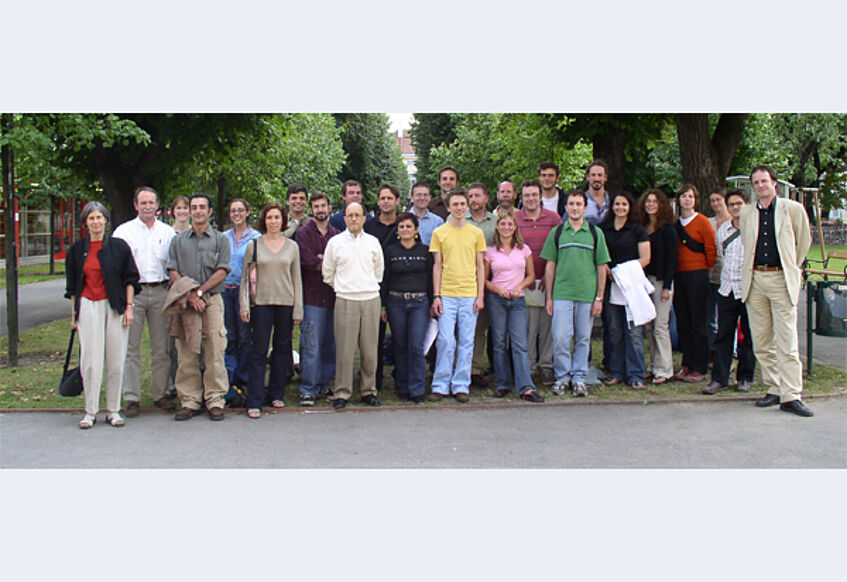USS-SWC 2004 – The Quest for Objectivity
The 4th Vienna Summer University was held on 19–30 July 2004.
Lecturers
- John Beatty (University of British Columbia, Vancouver, CAN)
- Michael Friedman (University of Stanford, USA)
- Helen Longino (University of Minnesota, USA)
The importance of objectivity in the biological science is underscored by episodes in which external values have misled scientists. But what do we do with cases in which external values seem to have led scientists in the right direction? To address these issues, we will take an in-depth look at the role of natural theology and political economics in the development and reception of Darwin's theory of evolution by natural selection. Literature will include primary sources in 19th century natural history, natural theology, political economics and philosophy of science; secondary literature on the Darwinian revolution; and contemporary literature on objectivity and the distinction between internal and external values. The aim is primarily to advance our understanding of objectivity in science, but also secondarily to provide students with the resources to teach the Darwinian revolution, and to mine that set of developments for broader philosophical and science studies purposes.
The philosophical question concerning the objectivity of the physical sciences begins in the modern period with Kant's philosophy of natural science in the late eighteenth century. Kant made the objectivity of human cognition into a central philosophical theme, and he took the Newtonian mathematical physics that dominated the eighteenth century as one of his most important models of objective human knowledge as such. During the nineteenth century, however, a wide variety of new styles of physical theorizing were developed. Scientific philosophers of the nineteenth century, such as Helmholtz, Mach, and Poincaré, responded to these new developments and attempted, accordingly, to extend or modify the Kantian theory of objectivity to accommodate them. The development of non-Euclidean geometry also played an important role, since Euclidean geometry had provided Newton (and Kant) with an underlying mathematical framework within which physical theory was supposed to be formulated. Finally, the articulation of Einstein's theories of relativity at the beginning of the twentieth century appeared to undermine the Newtonian and Kantian pictures completely and led, for precisely this reason, to the radically new approach to scientific objectivity constructed by the logical empiricists in Vienna and Berlin. We shall examine these historical developments and then discuss their implications for objectivity in the physical sciences today. In particular, we will look at Kuhn's Structure of Scientific of Revolutions against this background and discuss the prospects that might emerge for a post-Kuhnian philosophy of scientific objectivity.
The lectures, concerning the quest for objectivity in the social sciences, will consider two kinds of challenge to objectivity ideals. The very attempt to develop scientifically objective accounts of scientific understandings of human life and activity on the model of physics has seemed to undermine conceptions of what it is to be human -- capacities of intentionality, deliberation, and self- reflection. Either such knowledge is not possible or what we take to be distinctive features of human life are an illusion. We will critically review the understanding of objectivity that results in this dilemma, focusing on forms of reductionism in biology and economics. Secondly the very possibility of objectivity for any science has been challenged by recent work in social, cultural, and feminist studies of science. We shall critically review the scope and force of these challenges. The conclusion will offer some suggestions towards resolution of both challenges.
